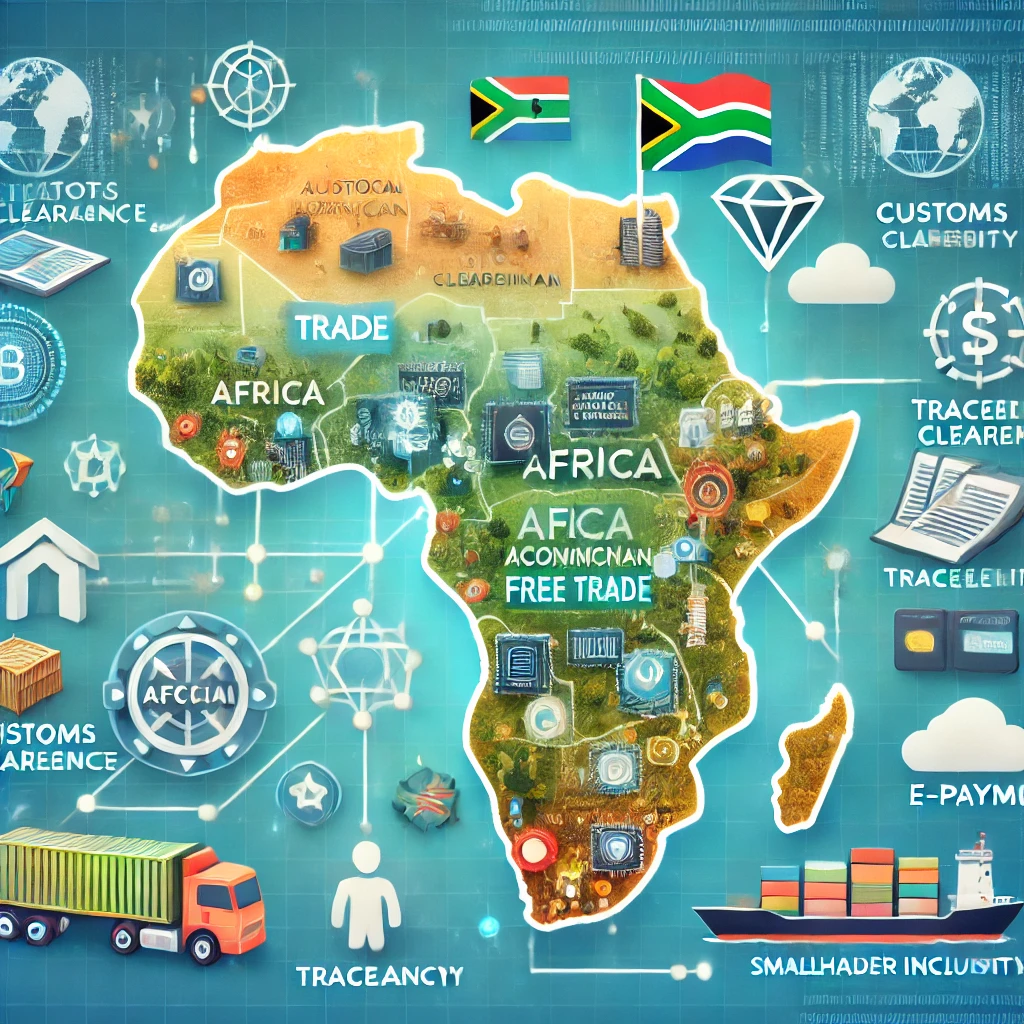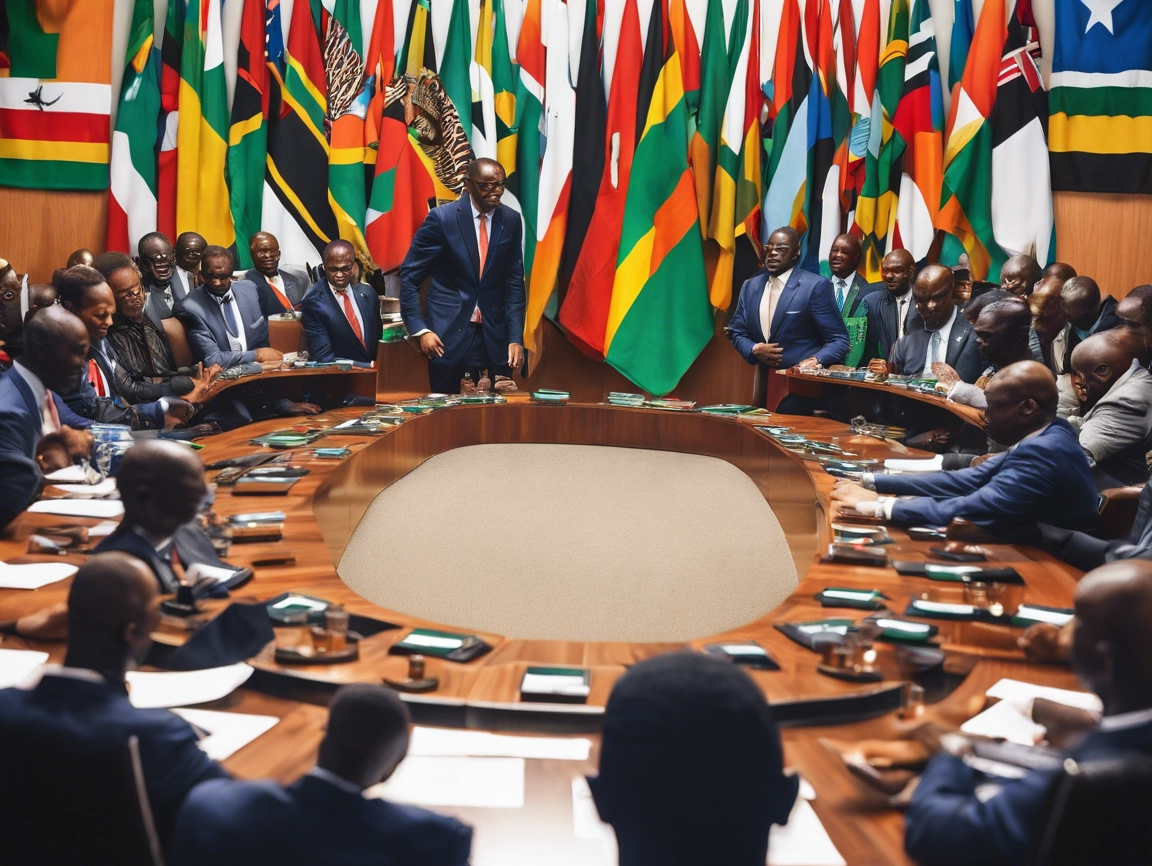A few years ago on January 1, 2021, the African Continental Free Trade Agreement (AfCFTA) came into effect, laying the foundation for the world’s largest free trade area. Just months later, as economies grappled with the aftermath of the COVID-19 pandemic, AfCFTA Secretary-General Wamkele Mene voiced optimism, asserting that “increased intra-African trade is what will drive economic development post-COVID-19.” That economic recovery is already underway, with over a dozen African economies showing positive growth in the past year and the region’s growth projected to reach 2.3-3.4% in 2021. Yet, longstanding trade barriers persist, from complex customs processes to unpredictable trade policies.
Blockchain technology offers a promising solution to overcome these hurdles, leveraging its transparent, secure, and decentralized structure to transform trade. As governments and corporations explore blockchain’s potential in trade, it’s becoming evident how this technology could unlock AfCFTA’s projected $3 trillion economic impact. Here’s a look at four key ways blockchain can drive trade growth across Africa.
1. Streamlined Customs Clearance
The fragmented customs processes across Africa present a significant barrier to efficient trade. Blockchain could change this by digitizing and simplifying customs operations, potentially cutting data entry needs by up to 80%. Platforms like TradeLens allow traders to upload documents to a single chain, tracking paperwork and shipments in real-time. Already adopted by major ports in countries like Benin, Nigeria, and Egypt, blockchain-enabled platforms are poised to reduce time, risk, and costs for cross-border trade in Africa.
2. Enhanced Traceability
Blockchain’s secure, transparent framework makes it ideal for verifying supply chain standards and certifications, addressing the traditional challenges of quality control and fraud. By assigning and auditing certifications on the blockchain, companies can provide verifiable proof of authenticity to end consumers. This technology has already been applied to products like Tunisian olive oil, Rwandan coffee, and Zambian cassava, ensuring they reach global markets through verified ethical supply chains.
3. Simplified E-Payments and Trade Finance
Blockchain has the potential to transform trade finance by streamlining complex, paper-based financial processes. For instance, the platform Wave partnered with Barclays to enable electronic signatures for bills of lading, while the Eastern and Southern African Trade and Development Bank used blockchain-based smart contracts to automate a $22 million sugar trade transaction. These advancements cut down on administrative bottlenecks, speeding up transactions and payment cycles for African traders.
4. Inclusive Supply Chains for Smallholders
Blockchain technology also paves the way for financial inclusion, especially for smallholder farmers. By facilitating digital wallets and identity verification, companies like Everest enable farmers to build transaction histories that make them eligible for financing. This is particularly impactful for those without access to traditional banking, creating a more inclusive trade ecosystem.
Challenges and Opportunities Ahead
Adopting blockchain comes with challenges, from the high costs of integrating new technology to ensuring interoperability between systems. Cybersecurity remains a concern, as do potential delays in data processing as blockchain systems scale. Yet, the advantages – from reduced transaction costs to greater traceability and streamlined digitization – make blockchain an essential tool in transforming African trade.
As AfCFTA moves closer to full implementation, blockchain could be a pivotal asset, helping the continent unlock the vast economic potential of intra-African trade. For Africa’s economies, early adoption could be key in achieving efficient, secure, and inclusive trade growth in the digital era.


